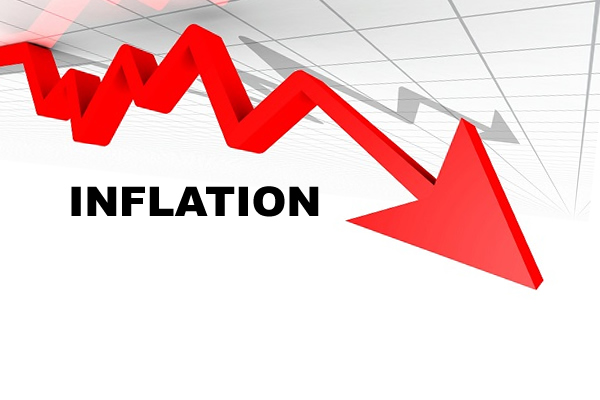Nigeria's annual inflation rate moderated to 12.48 percent in April, its lowest level in more than two years and its 15th straight monthly decline, latest data from the National Bureau of Statistics (NBS) has shown on Tuesday.

The consumer inflation index fell from 13.34 percent in March. A separate food price index showed inflation at 14.80 percent in April, compared with 16.08 percent in March.
Food inflation has been in double figures for nearly three years but has sustained a downward decline for the past six months.
The statistics office said the highest increases were recorded in potatoes, yam, and other tubers, as well as bread and cereals, plus oil and fats.
The central bank’s monetary policy committee is due to meet later this month to set its main interest rate. It held the rate at 14 percent in April in an attempt to curb inflation, especially in food prices.
It has kept rates tight for more than a year to support the naira and attract foreign investors into the debt market.
Analysts at United capital said the recent deceleration in headline inflation would be sustained going forward, noting that their assertion is supported by a continued pullback in food inflation, thanks to base effects from 2017 and continued stability in the FX market.
They noted that the feedback effect from the herdsmen killings in Benue State, Taraba State and environ, is disturbing, especially on food inflation.
"To this end, we highlight the marginal uptick in m/m food inflation (to 0.91 percent in Apr-18) for a second consecutive month, after touching 0.85 percent in Feb-18."
Nevertheless, the analysts projected May 2018 inflation rate to decelerate faster, to 11.3 percent (below the CBN’s target of 12.0 percent), with m/m inflation rate anticipated to steady at 0.82 percent m/m.
"At 12.5 percent, Nigeria’s real interest rate (MPR less headline inflation) improved to 1.5 percent from 0.7 percent in March 2018, the first time in 2 years of negative real interest rate. While this indicates a further repricing in the yield environment, recent aggressive liquidity mop-up exercise by the CBN may off-set sharp moderation in yields," concluded United Capital analysts.







